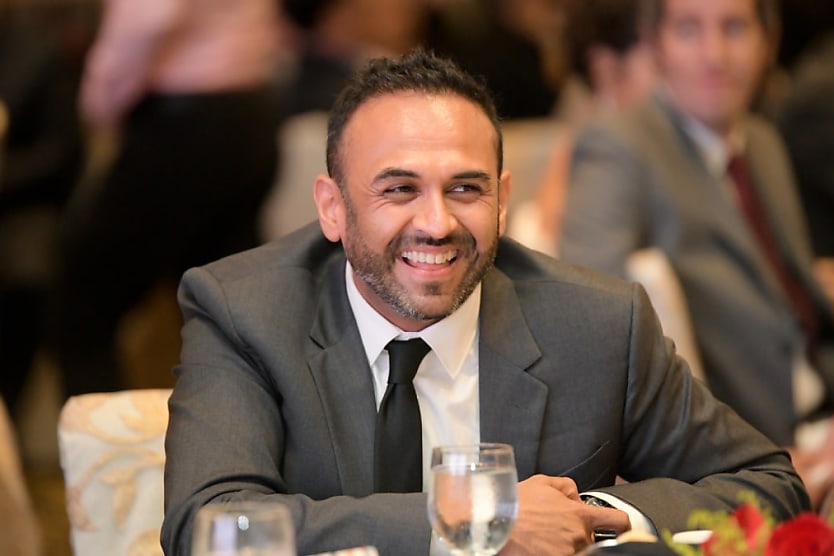Special Olympics director on the importance of disability support
SHARE THIS ARTICLE

The third of December was International Day of Disabilities. PR and communications firm BCW said in a statement that this day is a time for highlighting the disconnect in disability inclusive hiring.
According to an article by The Guardian referenced by BCW, half of the managers in Australia have not recruited a disabled employee, and 10 per cent said they wouldn’t in the future. This is based on a survey with 501 respondents.
BCW put HR Leader in contact with Dipak Natali, the Special Olympics’ regional president and managing director for Asia-Pacific. In conversation with HR Leader, he outlined the importance of inclusion for disabled candidates and the benefits it can bring to an organisation.
Jack Campbell, journalist at HR Leader: “What sparked your passion for disability support?”
Mr Natali: “My parents were immigrants to the UK, and they have always raised me to believe that everyone should be given the chance to reach their potential regardless of their background or circumstances – this formed the foundation of my passion for disability and support. The belief and commitment to providing opportunity and seeking equal rights for all is a big part of what has led me to [my] 20-year (and counting) career in the non-profit sector.”
He continued: “People with intellectual disabilities (PWIDs) have continued to remain one of the most marginalised and neglected communities across the globe. Unfortunately, they still do not enjoy equal opportunities or adequate support at schools and in the workplace. Society’s lack of acceptance and the lack of policies that encourage inclusion of PWIDs are just a few of the many factors that continue to exacerbate the schism between the abled and our PWID community.”
“Working with Special Olympics gives me the opportunity to give marginalised people a voice and to ultimately create a more inclusive and accepting world for them. At Special Olympics Asia Pacific (SOAP), our core mission is to create a community-based grassroots movement for PWIDs, combining sports, healthcare, and community building and inclusion – that includes continual facilitation for equal employment opportunities. Specifically, through our programmatic work in athlete leadership, we find ways for athletes to develop foundational skills that are also applicable to the workplace,” explained Mr Natali.
“The road to inclusion cannot be achieved alone. The issue is systemic, and society, businesses and governments need to come together to inculcate a sense of acceptance for those that are different.”
Journalist: “What can organisations do to better accommodate disabled candidates?”
Mr Natali: “PWIDs are perfectly capable of contributing to an organisation when given adequate training and when the job-match is done correctly. They can bring many relevant skills to the table and have the potential to take on larger roles such as corporate culture ambassadors. Unfortunately, job opportunities for PWIDs are few.”
“There are many misconceptions about PWIDs – such as being unable to hold down a job or take responsibility. The most honest and effective way to educate ourselves about the ID community is by being open to having honest conversations with them. Only when our society, governments and businesses start recognising and committing to hiring, training and assimilating PWIDs into the workforce, will we start to see genuine progress and change,” said Mr Natali.
“On the hiring front, employers need to recognise that diversity and inclusion in the workplace goes beyond fulfilling a quota. Employing a PWID gives organisations a chance to leverage on an untapped talent pool, gain fresh perspectives and drive innovation.”
Journalist: “What are some examples of companies getting disability support right?”
Mr Natali: “The good news is that more organisations are starting to realise the benefits of an inclusive hiring system and are providing disability support to their employees.”
“PWIDs, if given the right opportunities, have the potential to be [successful], and employers should hire them because they can do the job, regardless of their disabilities,” he said.
“One such example is Benjamin Haack, who is not only an inspirational athlete but a Special Olympics athlete leader, mentor and ambassador in Australia.”
Mr Natali continued: “These are positive steps towards inclusion, but it will certainly require adequate infrastructure, expertise and mindset change to enable greater diversity in the long term. We have seen some progress made in countries like Singapore which recently launched its Enabling Masterplan 2030 roadmap, which includes an aspirational target of 40 per cent employment of people with disabilities by 2030.”
Journalist: “What are the key benefits of inclusion for a business?”
Mr Natali: “As mentioned, including PWIDs in the employment process can help organisations foster innovation and drive creativity with a more diverse workforce. With 472 million working-age PWDs in the Asia-Pacific region, there is a sizeable talent pool that can be tapped on.”
“According to the UN, however, the unemployment rate for PWIDs across APAC is usually double that of the general population and is often as high as 80 per cent or more.”
Mr Natali said: “For economic independence to start becoming a reality for PWIDs, there needs to be fair and equal access to quality education and real opportunities to succeed in the workplace. It must be noted that people with intellectual disabilities remain one of the most underserved, misunderstood and stigmatised populations in the world.”
He added: “To drive that crucial mind-set shift, it is important that employers provide PWIDs with the opportunities and relevant platforms to dialogue and share their experiences with their colleagues without intellectual disabilities, to mitigate challenges and opportunities faced at the workplace.”
RELATED TERMS
In the context of health experience, the International Classification of Functioning, Disability and Health (ICF) defines disability as an umbrella term for impairments, activity limitations and participation restrictions. It denotes the negative aspects of the interaction between an individual (with a health condition) and that individual's contextual factors (environment and personal factors).
Jack Campbell
Jack is the editor at HR Leader.

